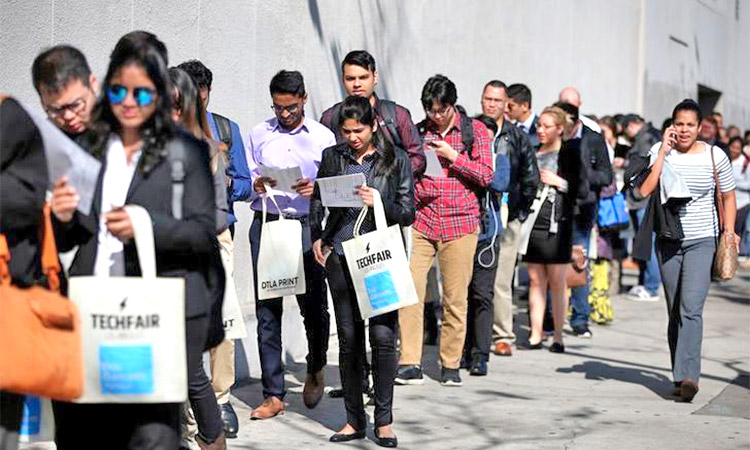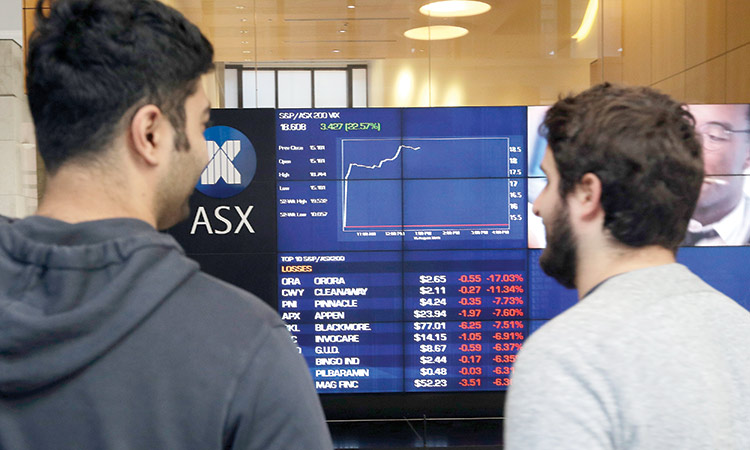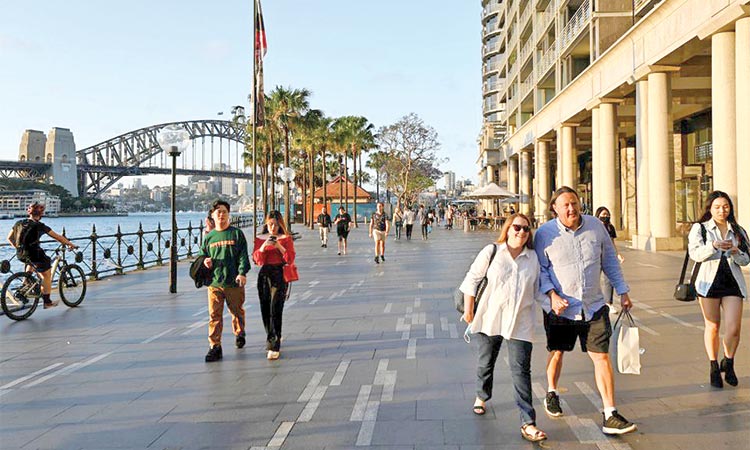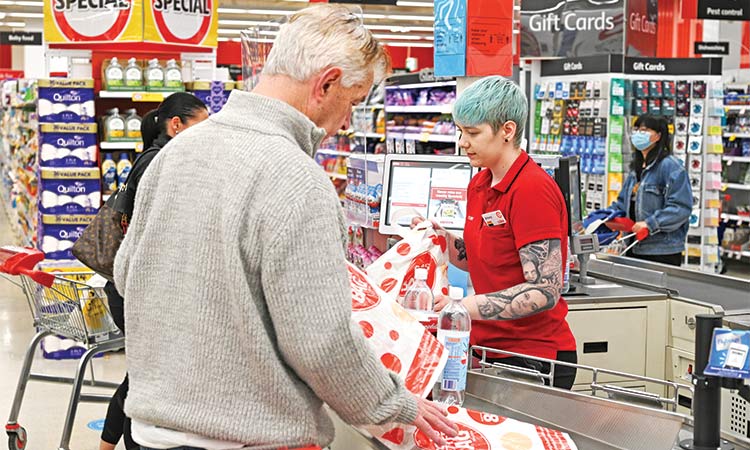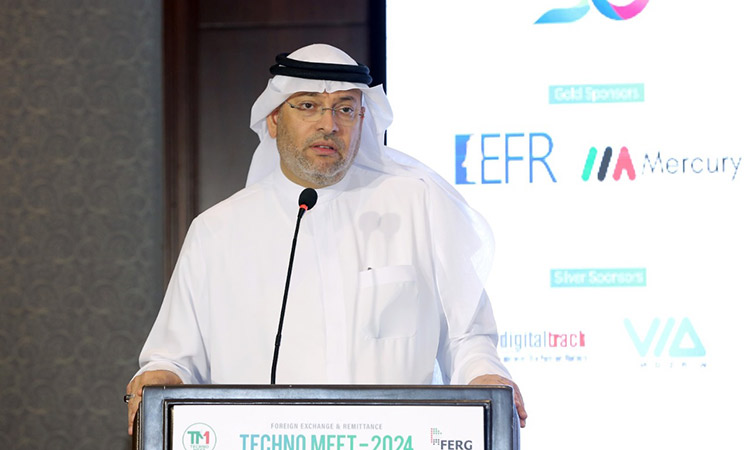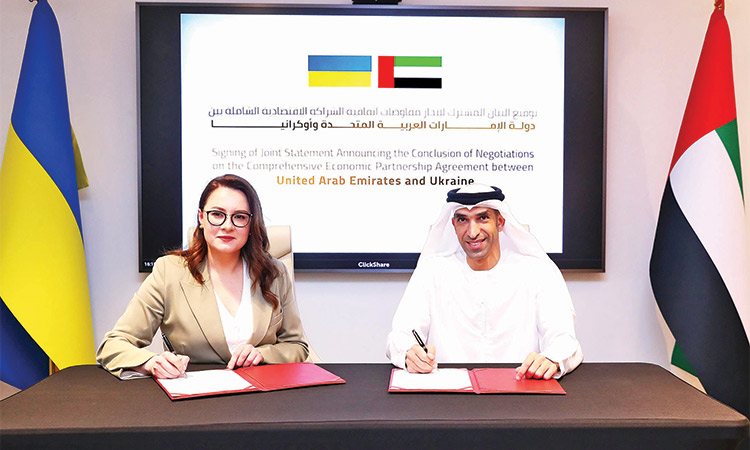Australia jobless rate hits fresh 48-year low of 3.4 per cent in July
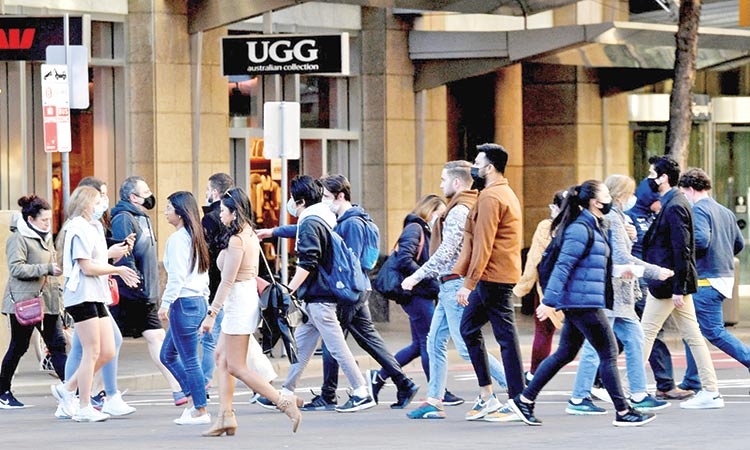
People walk past on a street in the central business district of Sydney. File/Agence France-Presse
Figures from the Australian Bureau of Statistics out on Thursday showed the jobless rate dipped to 3.4%, when analysts had looked for it to hold at 3.5%. That was the lowest rate since August 1974 and only added to evidence the labour market was drum-tight.
Yet net employment also surprised by falling 40,900 in July, missing forecasts of a 25,000 increase and the first drop since October last year.
Further clouding the picture, the number of unemployed also fell 20,200 and unexpectedly took the participation rate down to 66.4%, from 66.8%.
All this statistical noise limited the market impact with the local dollar down just a fraction to $0.6927, while futures continued to wager the Reserve Bank of Australia (RBA) would keep raising interest rates undeterred.
Bjorn Jarvis, head of labour statistics at the ABS, noted July coincided with winter school holidays and worker absences associated with COVID-19 which dragged down hours worked.
“During the pandemic, it has not been uncommon to see larger-than-usual changes or slowing in employment and hours around school holidays,” said Jarvis.
There were also signs of strength in measures of underemployment and underutilisation which fell to the lowest since 1982, and these tend to correlate well with rising wages.
Data out Wednesday showed wage growth rose modestly in the June quarter to 2.7%, far behind inflation at 6.1%. Yet, that was still an eight-year high and pay growth granted in the private sector did accelerate to 3.8%.
Business surveys have shown firms struggling hard to find suitable labour and willing to pay to retain staff.
The RBA has emphasised that its liaison with business shows pay and bonuses are on the way up and rising labour costs will only add to inflationary pressures.
Seeking to cool the economy, the central bank has already lifted interest rates by 175 basis points since May to reach 1.85% and markets are priced for a peak around 3.6% by April next year.
“Labour demand indicators remain firm, which suggests the fall in employment in July will be short lived,” said Sean Langcake, head of macroeconomic forecasting for BIS Oxford Economics.
“All signs point to a very tight labour market.”
Qantas deal: Australia’s competition regulator said on Thursday that Qantas Airways Ltd’s proposed purchase of the remainder of charter operator Alliance Aviation Services Ltd for A$610.8 million ($423.41 million) raised concerns.
“We are concerned that this proposed acquisition is likely to substantially lessen competition for air transport services to and from regional and remote areas in Queensland and Western Australia for corporate customers,” Australian Competition and Consumer Commission (ACCC) Chair Gina Cass-Gottlieb said in a statement.
Alliance shares slumped 6.5% in early trading following her comments.
A final decision is expected in November, the ACCC said.
Qantas has owned 20% of Alliance since 2019 but buying the remaining 80% would give it a dominant share of flying for resources industry customers, a market in which it competes against Virgin Australia and Cobham’s National Jet Express, soon to be owned by Regional Express Holdings Ltd .
Many mining and oil and gas companies in Australia staff their operations using a fly-in/fly-out (FIFO) model rather than permanently basing their employees at remote sites, making the flying a lucrative business for airlines.
Qantas has offered Alliance investors A$4.75 a share for the remainder of the company in an all-stock deal.
Alliance shares had closed at A$3.55 on Wednesday, indicating investor scepticism that the regulator would approve the transaction.
Qantas Group Executive of Associated Airlines and Services John Gissing said on Thursday the airline would continue to work with the regulator to ensure any competition concerns were addressed.
Alliance represents only around 2% of total aviation industry capacity but it supplies around 30% of charter services, followed by Qantas with 23% and Virgin at 22%, Qantas said in a statement.
A Virgin Australia spokesperson said Qantas’ proposed acquisition had serious implications for competition in Australian aviation and consumers would be impacted if competition was reduced.
Virgin and Alliance have had an agreement allowing them to jointly bid for FIFO business since 2017. The ACCC initially proposed to deny that deal on competition grounds but approved it in a final decision after comments from market participants.
